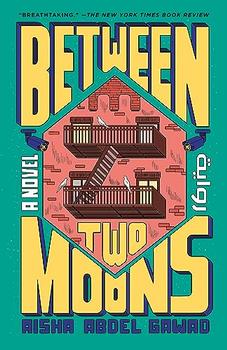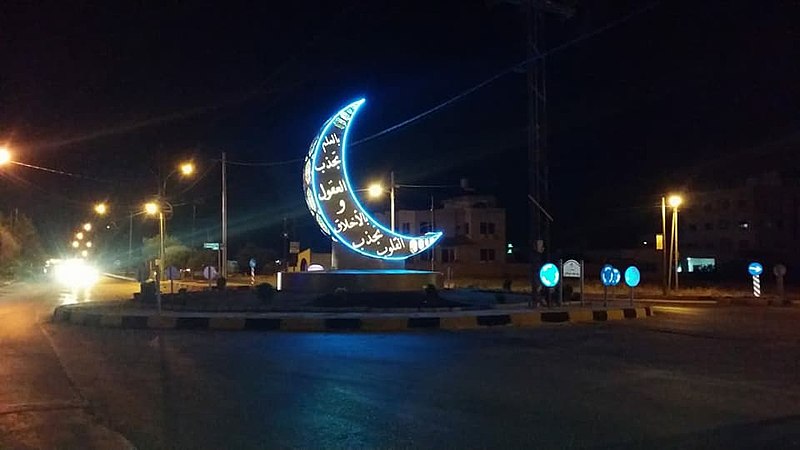Summary | Excerpt | Reviews | Beyond the Book | Read-Alikes | Genres & Themes | Author Bio

A Novel
by Aisha Abdel GawadThis article relates to Between Two Moons
 Aisha Abdel Gawad's debut novel, Between Two Moons, follows twin sisters Amira and Lina as they navigate self-discovery during the celebration of Ramadan. Ramadan is a month-long Islamic tradition characterized by spiritual devotion practiced through prayer, fasting, charity and other activities. It is considered one of the holiest times of year, and includes Laylat al-Qadr, known as the night that God revealed the Qur'an, the central text of Islam, to the prophet Muhammad. Ramadan is celebrated during the ninth month of the Islamic calendar, and in most places in the world falls at a different time each year due to an approximate 11-day difference between the Gregorian calendar, which adheres to solar months (currently used by the majority of nations), and the Islamic calendar, which adheres to lunar months. It is typically celebrated between sightings of the new moon. Gawad's novel takes place entirely within the duration of Ramadan, hence the title Between Two Moons.
Aisha Abdel Gawad's debut novel, Between Two Moons, follows twin sisters Amira and Lina as they navigate self-discovery during the celebration of Ramadan. Ramadan is a month-long Islamic tradition characterized by spiritual devotion practiced through prayer, fasting, charity and other activities. It is considered one of the holiest times of year, and includes Laylat al-Qadr, known as the night that God revealed the Qur'an, the central text of Islam, to the prophet Muhammad. Ramadan is celebrated during the ninth month of the Islamic calendar, and in most places in the world falls at a different time each year due to an approximate 11-day difference between the Gregorian calendar, which adheres to solar months (currently used by the majority of nations), and the Islamic calendar, which adheres to lunar months. It is typically celebrated between sightings of the new moon. Gawad's novel takes place entirely within the duration of Ramadan, hence the title Between Two Moons.
Ramadan is not only a time of religious devotion but also of self-renewal. As Gawad states in an interview with NPR, "[I]t's a time of intense self-reflection. You're supposed to make yourself closer to God and figure out why you do the things that you do." Gawad's protagonists, a pair of adolescent girls, struggle with their search for clarity and identity, a search heightened by the celebration of (and pressure to self-actualize during) Ramadan. Although Amira and Lina often break their fast as they contend with teenage life and strife, the act of fasting is paramount during Ramadan. According to Islamic Networks Group (ING), the goal of fasting is "gaining greater God-consciousness, known in Arabic as taqwa, signifying a state of constant awareness of God. From this awareness a person should gain discipline, self-restraint and a greater incentive to do good and avoid wrong." Also known as sawm, fasting is one of the five pillars of Islam, and is considered mandatory during Ramadan, but can be practiced as a form of worship at any time of year.
During Ramadan, observing Muslims will usually perform a morning prayer after suhur, a pre-dawn meal, and another prayer before iftar, the sunset breaking of the fast. Muslims also have a regular routine of daily prayer, which is not specific to Ramadan alone. Ramadan is a very social time in the Muslim community. It is common for families to gather for iftar, and there are nightly prayers at mosques, called taraweeh.
Many times in Gawad's novel, we see the characters perform the act of wudu, a purification process, before partaking in prayer. Wudu consists of thoroughly washing the face and forearms, and wiping the face and feet. Muslims may also state their intention prior to praying, an act known as niyyat.
Photo of a crescent moon statue for the celebration of Ramadan in Jordan, by Mona Maher (CC BY-SA 4.0)
Filed under Places, Cultures & Identities
![]() This article relates to Between Two Moons.
It first ran in the July 12, 2023
issue of BookBrowse Recommends.
This article relates to Between Two Moons.
It first ran in the July 12, 2023
issue of BookBrowse Recommends.
Your guide toexceptional books
BookBrowse seeks out and recommends the best in contemporary fiction and nonfiction—books that not only engage and entertain but also deepen our understanding of ourselves and the world around us.